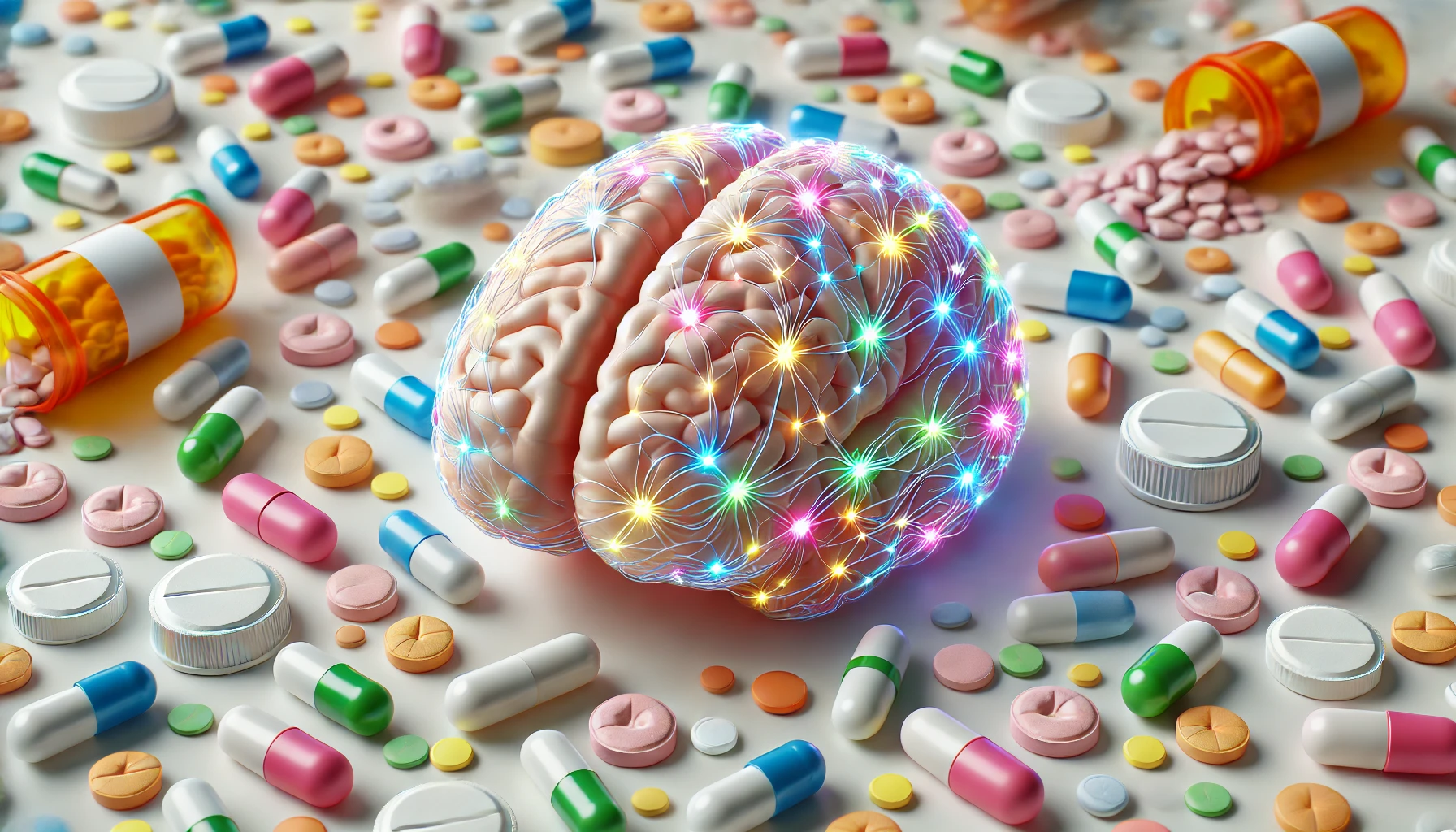Check out this answer from Consensus:
While some supplements like omega-3 fatty acids and probiotics show promise for enhancing cognitive function, others such as soy supplements, ginkgo biloba, and general vitamin and mineral supplements do not have strong evidence supporting their efficacy. Consumers should be cautious and rely on well-conducted scientific research when considering brain supplements.
The market for brain supplements is booming, driven by the desire to enhance cognitive function and stave off cognitive decline. However, the efficacy of these supplements varies widely. This article explores which brain supplements have been shown to work and which do not, based on recent scientific research.
Supplements That Work
Omega-3 Fatty Acids
Omega-3 fatty acids, particularly docosahexaenoic acid (DHA), have been extensively studied for their cognitive benefits. Research indicates that DHA supplementation can improve memory and reaction time in healthy young adults, especially those with low dietary intake of DHA7. Additionally, omega-3 fatty acids have shown potential in protecting against neurodegeneration in older adults, although more research is needed to confirm these benefits across different age groups9.
Probiotics and Synbiotics
Probiotics and synbiotics have gained attention for their potential to enhance brain function. A meta-analysis of randomized controlled trials found that these supplements significantly increased levels of brain-derived neurotrophic factor (BDNF), a key regulator of neuronal function, suggesting they could be beneficial for brain health6.
Multi-Vitamin/Mineral Combinations
A study exploring the effects of a multi-vitamin and mineral combination found changes in functional brain activity after four weeks of supplementation. Although the study did not find significant differences in cognitive performance, the changes in brain activity suggest potential cognitive benefits under certain conditions, such as fatigue8.
Supplements That Don’t Work
Omega-3 Fatty Acids in Older Adults
While omega-3 fatty acids show promise in younger populations, their efficacy in older adults is less clear. A large multinational study found no significant difference in cognitive performance between those taking omega-3 supplements and a placebo1. Another systematic review concluded that omega-3 supplementation did not consistently improve cognitive outcomes in older adults9.
Soy Supplements
Soy supplements have been studied for their potential cognitive benefits, but the evidence is insufficient to support their efficacy. Multiple trials found no significant improvement in cognitive performance, including memory and executive function, in adults taking soy supplements compared to a placebo1.
Vitamin and Mineral Supplements
A comprehensive review of vitamin and mineral supplementation found no meaningful effect on cognitive decline or dementia in cognitively healthy adults. The only positive signals came from long-term supplementation with antioxidant vitamins, but these findings were not strong enough to make definitive recommendations2.
Ginkgo Biloba
Ginkgo biloba is one of the most popular supplements marketed for cognitive enhancement, yet the evidence supporting its efficacy is weak. A systematic review found that ginkgo biloba did not significantly improve cognitive performance in healthy adults4.
DHA in Children
A study aimed at replicating earlier findings on the benefits of DHA supplementation in children found no consistent differences in reading, working memory, or behavior between the DHA and placebo groups. This suggests that DHA may not be as effective for cognitive enhancement in children as previously thought10.
